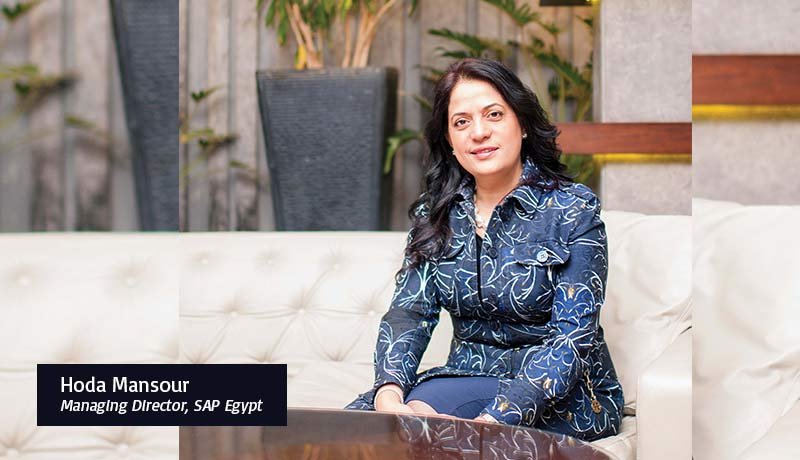23 December 2024, Mon |
10:48 PM

Egypt’s government-led digital transformation ranks as the top technology trend of the second half of 2021, boosting business and innovatively pushing citizen services to new heights, according to global technology firm SAP.
According to a recent Oxford Economics and SAP survey of 3,000 senior executives worldwide, nearly four-fifths (89 percent) of public sector senior executives think that data sharing helps them enhance how they communicate with citizens.
“The Egyptian government has advanced digital transformation amid the pandemic to serve citizens better,” said Eng. Hoda Mansour, Managing Director, SAP Egypt and New Frontiers.
Also said, “With 89 percent of public sector executives agreeing on the importance of data sharing, the top three goals for Egypt’s public sector in 2021 are to focus on employee and citizen experiences, leverage data insights for real-time decision-making, and enhance their employees’ digital skills to drive innovation.”
The top three lessons that distinguish a digital “have” from a digital “have-not” in the public sector are:
1. Employee and citizen experiences will close the gap with the public sector.
Egypt’s public sector will continue to pioneer data-driven innovation to improve user experiences thanks to government initiatives such as Egypt Vision 2030.
According to the survey, 89 percent of public sector leaders believe data sharing improves their ability to connect with citizens, 83 percent believe data sharing improves their ability to innovate existing products or services, and 82 percent believe data sharing helps them meet or exceed performance goals.
Egypt’s Ministry of Finance, in collaboration with IBM and E-Tax, a subsidiary of the Ministry, is using SAP technology to automate its fundamental taxing system fully. The Ministry’s goals are to simplify tax management, increase tax administration performance, digitalize the Egyptian Tax Authority, and promote Egypt’s economic growth.
2. Data insights will point the way toward actionable insights.
Organizations can use real-time data insights to improve operational efficiency and create robust policies. Before sharing citizen data, government organizations must first define the data’s broader aims, obtain end-user consent, and understand how sharing the data internally and with third parties can deliver new citizen services. Internally, 81 percent of public sector respondents effectively shared staff data and 74 percent shared citizen data.
Elaraby Hospital, the largest hospital in the Nile Delta region, implements SAP and Cerner’s next-generation Healthcare and Patient Management solution. HO Group’s United Company of Pharmacists, Egypt’s largest pharmaceutical wholesaler, uses B-Connect to transform operations with SAP S/4HANA and employee experiences with SAP SuccessFactors.
3. Digital skills capabilities will streamline and expand mission-critical services.
Many Egyptian and Middle Eastern companies have already embraced collaboration and flexible work arrangements to improve employee satisfaction. However, there is more that can be done to improve staff skillsets and cross-departmental collaboration. 61 percent of respondents mentioned a skills shortage as a hindrance to meeting strategic change efforts.
The German Federal Ministry for Economic Cooperation and Development (BMZ), the Deutsche Gesellschaft für Internationale Zusammenarbeit (GIZ) GmbH, and SAP have graduated two more groups of Egyptian youth from SAP’s flagship digital skills-building program, the SAP Young Professional Program, already in 2021, to support Egypt’s future workforce.